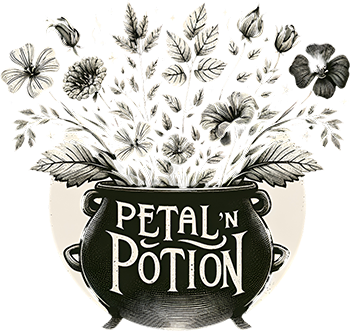T h y m e
Thyme (Thymus vulgaris) is a versatile herb known for its culinary and medicinal uses.
Native to the Mediterranean region, it has been used for centuries in traditional medicine to treat
various ailments due to its potent antimicrobial, anti-inflammatory, and antioxidant properties.
Benefits
- Antimicrobial Properties: Exhibits strong antibacterial, antifungal, and antiviral effects.
- Respiratory Health: Helps relieve symptoms of respiratory conditions such as asthma, bronchitis, and colds.
- Anti-Inflammatory: Reduces inflammation, benefiting conditions like arthritis and other inflammatory diseases.
- Antioxidant Properties: Provides antioxidants that protect cells from oxidative stress and damage.
- Digestive Health: Promotes healthy digestion and alleviates symptoms such as bloating, indigestion, and gas.
- Immune Support: Enhances immune function and helps the body fight off infections.
- Heart Health: Supports cardiovascular health by improving blood circulation and lowering blood pressure.
- Skin Health: Benefits skin conditions such as acne and eczema due to its antimicrobial and anti-inflammatory properties.
- Pain Relief: Alleviates pain associated with various conditions, including headaches and menstrual cramps.
- Mood Improvement: May help alleviate stress and improve mood.
Active Compounds
- Thymol: The primary active compound responsible for thyme’s antimicrobial and antioxidant properties.
- Carvacrol: Contributes to the plant’s therapeutic effects, particularly its antimicrobial and anti-inflammatory properties.
- Rosmarinic Acid: Offers additional antioxidant protection and supports overall health.
- Linalool: Known for its analgesic and anti-inflammatory effects.
- Caryophyllene: Enhances the plant’s therapeutic effects, especially its anti-inflammatory properties.
Who Should Avoid This
- Individuals with Allergies: Those allergic to thyme or related plants should avoid it.
- Pregnant and Nursing Women: Generally considered safe in culinary amounts, but it is advisable to consult a healthcare provider before use in medicinal doses.
- Individuals with Blood Disorders: Use caution due to potential blood-thinning effects.
- Individuals on Medication: Particularly those taking anticoagulants or antihypertensives should consult a healthcare provider to avoid interactions.
- Children: Consult a healthcare provider before giving thyme in medicinal doses to young children.
Warnings
While thyme offers numerous health benefits, some precautions and potential side effects should be considered:
- Allergic Reactions: Can cause allergic reactions in some individuals.
- Gastrointestinal Issues: High doses may cause stomach upset, nausea, or diarrhea.
- Pregnancy and Breastfeeding: Generally considered safe in culinary amounts, but consult a healthcare provider before use in medicinal doses.
- Blood Thinning: May have blood-thinning effects; use caution if you are taking anticoagulant medications.
- Interactions with Medications: May interact with certain medications, including anticoagulants and antihypertensives.
Usage Guidelines
Thyme can be used both short-term and long-term, depending on the condition being treated. For acute issues such as respiratory or digestive discomfort, it is typically used until symptoms improve. For ongoing benefits such as immune support, cognitive enhancement, or general wellness, longer-term use may be appropriate but always under the guidance of a healthcare professional. Always consult with a healthcare provider to determine the correct dosage and duration for your specific needs.
